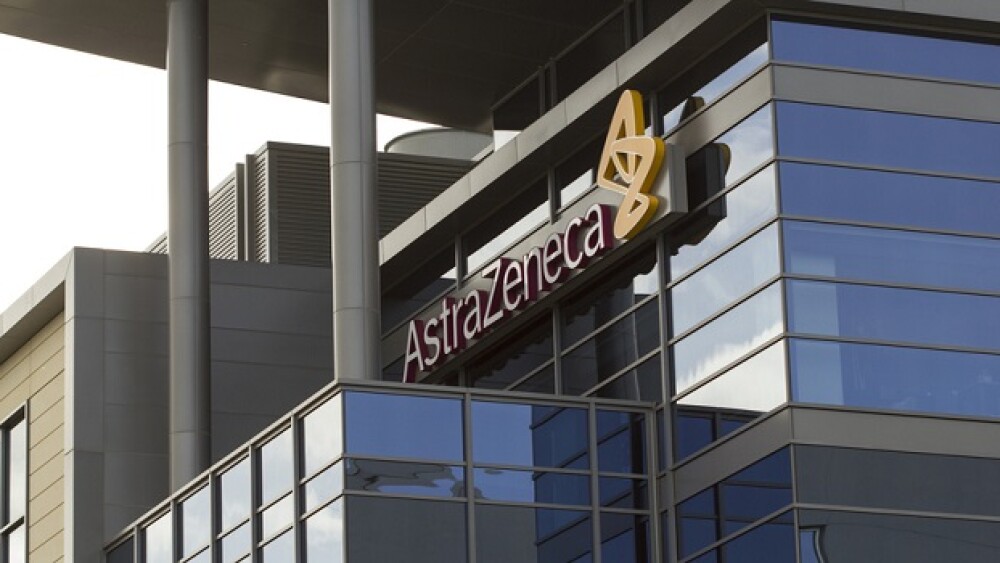Wainua, which is jointly developed and commercialized by AstraZeneca and Ionis Pharmaceuticals, was given the FDA’s green light on Thursday and will now compete with Alnylam’s two approved hATTR-PN therapies.
Pictured: AstraZeneca’s office in California/iStock, hapabapa
The FDA on Thursday approved AstraZeneca’s and Ionis Pharmaceuticals’ antisense therapeutic eplontersen, which will now carry the brand name Wainua, for the treatment of polyneuropathy in hereditary transthyretin-mediated amyloidosis.
Thursday’s regulatory victory makes Wainua the only self-administered treatment for this rare nerve disease that leads to dysfunction of different organs and tissues, according to AstraZeneca’s announcement.
The FDA’s approval is supported by data from the Phase III NEURO-TTRansform study, which showed that Wainua treatment significantly reduced serum concentrations of the transthyretin (TTR) protein, coupled with a significant improvement in neuropathy impairment. Patients treated with Wainua also had better quality of life.
Ruud Dobber, executive vice president of AstraZeneca’s biopharmaceuticals business unit, said in a statement that Wainua’s U.S. approval “offers a new treatment option” to patients suffering from polyneuropathy associated with hereditary transthyretin-mediated amyloidosis (hATTR-PN), for whom there is an “urgent medical need,” particularly for novel therapies that they can administer themselves.Wainua “provides consistent and sustained reduction in serum TTR concentration compared to baseline while halting disease progression and improving quality of life for people living with this debilitating condition,” Dobber said.
Wainua is a ligand-conjugated antisense oligonucleotide therapeutic that works by tagging the TTR mRNA for degradation, reducing the overall production and concentration of the TTR protein. In hATTR-PN, TTR proteins are mutated and faulty, leading to the toxic accumulation in major organs, impairing their function and causing widespread nerve damage.
Eplontersen, the main ingredient in Wainua, was first discovered by Ionis Pharmaceuticals. In December 2021, AstraZeneca bought the right to jointly develop and commercialize eplontersen in the U.S. for $200 million upfront and the promise of up to $485 million once it won FDA approval. AstraZeneca also pledged as much as $2.9 billion in sales-related milestones, plus royalties.
In July 2023, AstraZeneca and Ionis expanded the agreement to also cover commercialization in Latin America.
Thursday’s approval of Wainua puts AstraZeneca and Ionis in the same arena as Alnylam, which owns two approved hATTR-PN therapies—Onpattro (patisiran), approved in August 2018, and Amvuttra (vutrisiran), approved in June 2022. In the third quarter of 2023, the two therapies brought in $82 million and $149 million in sales, respectively.
Beyond hATTR-PN, AstraZeneca and Ionis are also studying eplontersen as a treatment for cardiomyopathy associated with ATTR. In July 2023, Ionis announced that it had completed enrollment into the Phase III CARDIO-TTRansform study, which is the “largest, most comprehensive” study of ATTR-cardiomyopathy, with more than 1,400 participants, according to the company.
Data from CARDIO-TTRansform can come as early as the first half of 2025, Ionis said.
Tristan Manalac is an independent science writer based in Metro Manila, Philippines. He can be reached at tristan@tristanmanalac.com or tristan.manalac@biospace.com.
Correction (December 22): The headline and lead were changed to make it clear that Wainua was developed collaboratively by AstraZeneca and Ionis.






